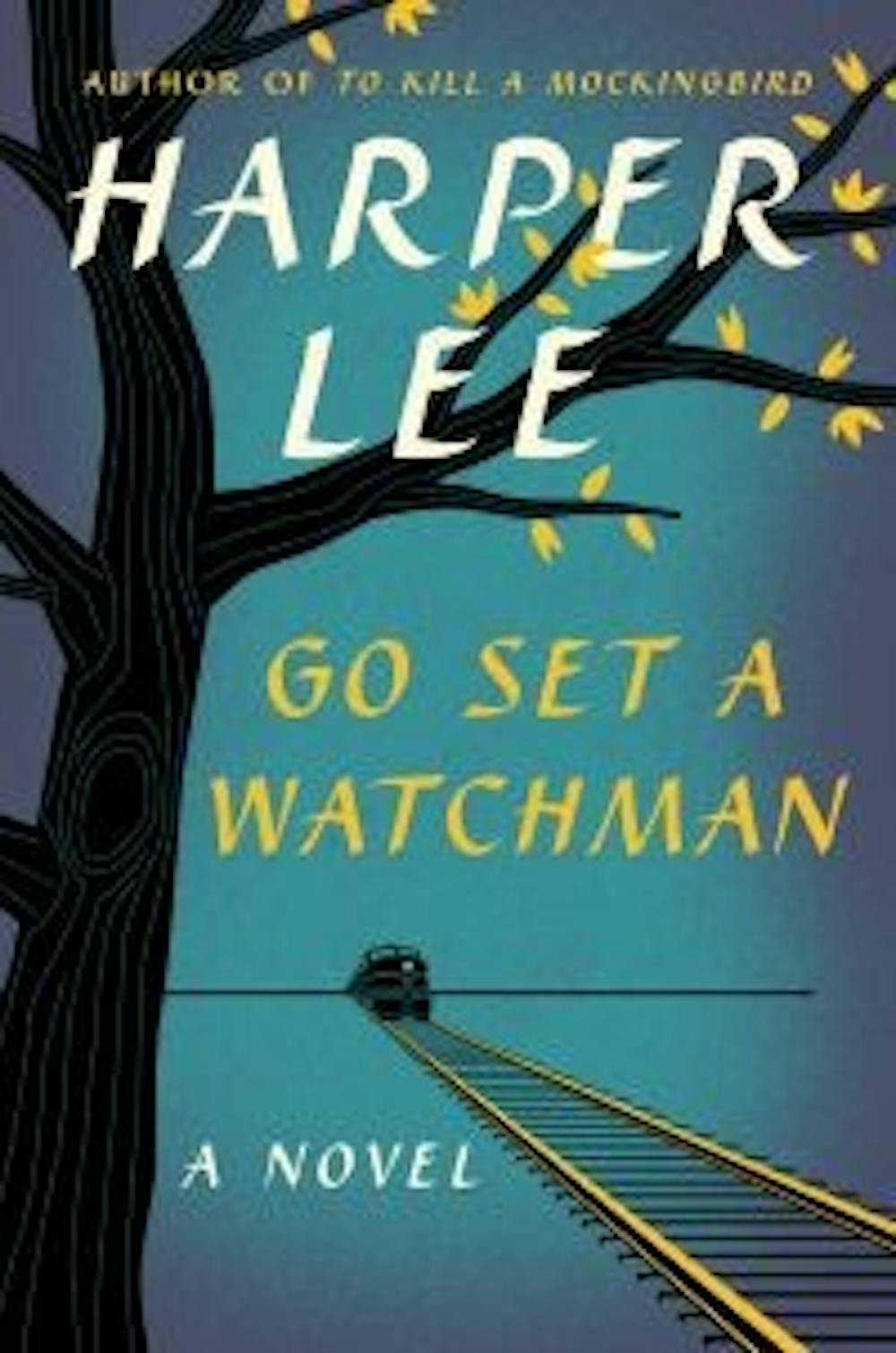4 stars
It’s summer again in that sleepy Alabama town, and while time may have been kind to Scout Finch, her father, Atticus has not fared so well — both in body and in the hearts of readers.
"Go Set a Watchman," while not quite the literary marvel of its predecessor (sequel?), had very large shoes to fill and manages to do so in an admirable fashion. While the writing at points falls flat (though this may be due to my distaste for most uses of stream of conscious) and at some points there are paragraphs that are almost entirely featured in Mockingbird, for the most part the writing serves as an adequate reminder of the artistic poetry of the original.
Furthermore, author Harper Lee manages to achieve something she didn’t pull off in "To Kill a Mockingbird": Watchman is a thinking novel. While Mockingbird provided intense symbolism and thoughtful morality, often times the morals of Scout and Jem’s encounters were spelled out to the reader. While Watchman does suffer from exposition at the end, throughout the book, ultimately, readers are left to decide what each moment means for the book rather than having an authority figure from the novel tell them what they were supposed to learn.
This ties in to Watchman’s most successful part — its plot. Lee manages to navigate the difficulty of having Scout remain the same character with a different level of authority remarkably well. Scout is no longer young, therefore she doesn’t spend this book following others around, but deciding for herself what to do. And even Atticus’s seeming change of heart is well-placed and serves the story well.
Characters within Watchman, like Alexandria, Calpurnia and even the mentions of Dill are similar, but not the same — they’ve aged, and we get to see them in a different light. But, at their core, they’re still them and the changes are only outgrowths from their personalities of years before. And yes, that’s true even for Atticus.
It’s hard to find someone who’s both read Mockingbird and hasn’t heard of Atticus’s purported racism. It’s even harder to find a Mockingbird fan who isn’t upset by this — when I first heard, I said that I wouldn’t read "Go Set a Watchman." And yet I’m now writing this review, go figure.
There are two reasons why this point of view is wrong. The first has to do with a major plot element of the book, so I’m not going to spoil it here. The second has to do with hero-worship. For years, Atticus has represented the epitome of all that is good in middle school classes across the nation. People have expressed disgust with the ruination of this beloved hero, and see this as a reason to not read Watchman.
I disagree. Reading Watchman is important — it allows us, as readers, to gain nuance. For years, we have been left with a child’s perspective of Atticus from Mockingbird. When we finish with Watchman, we finally get to see the man as what he is — a man, filled with blind spots and flaws. He is no longer an invincible father figure, whose waist is at eye-level. He’s a man that we stare in the face.
This is made all the more poignant by the fact that Atticus was based off of a real person — Lee’s father. Imagine being Lee, all these years, watching the cult of Atticus come into existence, and know this entire time that there’s so much more to him. Lee came to this disturbing revelation but for years we were spared. This book allows us, like Scout, to finally grow out of an eternal youth.
Now I’d be remiss if I didn’t bring up the general controversy about this novel’s publication here, though these circumstances do not change the quality of the text. There is a chance that this book was published in bad faith — that Harper Lee may not be capable of deciding whether to publish this book and, with the death of her sister and guardian last year, there was room for her lawyer to swoop in and make decisions for Nelle, as she is known in her home of Monroeville, Alabama (Maycomb to us readers). This is the reason my family won’t read the book.
And I understand feeling that way — it makes sense. If it’s true that Lee has been taken advantage of, then I’ve now played a role in that. However, I think it to be much worse to treat someone as inept when they’re able than to help play a role in this kind of exploitation. People have the right to be heard and taken seriously, even if what they say now is different than what they’ve said for a while — as Lee, both now and in "Go Set a Watchman," reminds us, characters are complex, and sometimes seemingly contradictory.
To get the day's news and headlines in your inbox each morning, sign up for our email newsletters.





